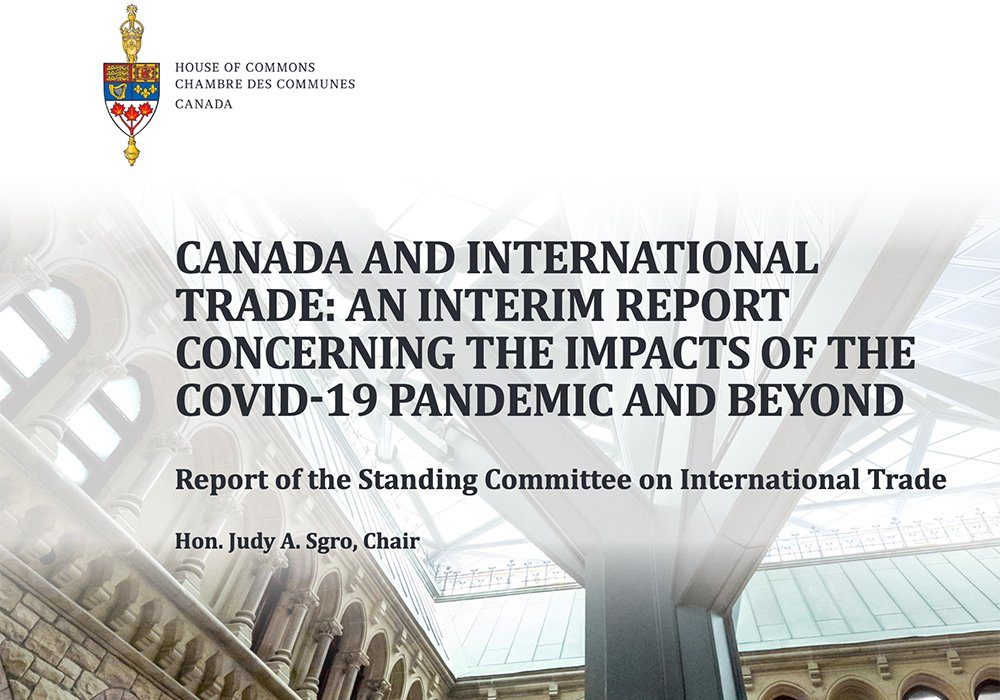More co-ordination, diversity needed for post-pandemic trade: report

Better co-ordination across government agencies, creating more export opportunities for agri-tech and increasing a focus on trade are recommendations found in a parliamentary report focused on international trade and COVID-19.
The standing committee on international trade released its interim report in May, outlining four recommendations.
Starting last October, MPs from each of Canada’s major political parties took part in meetings where witnesses spoke about trade and the pandemic. Government officials, trade associations, academics and others, like the Canola Council of Canada, were heard.
In a joint submission, the Canola Council and the Canadian Canola Growers Association said open borders through the pandemic were “critical to mitigating the impact of COVID restrictions.”
The Union des Producteurs Agricoles spoke out about protectionism in the agri-food sector. According to Global Affairs Canada, between March and October 2020 there were more than 200 trade restrictions imposed around the globe, a number that has only grown as the pandemic continues.
Quebec’s general farm group contended protectionism in countries like the United States and Japan continue to harm producers.
The submission from canola organizations suggested the federal government fulfil its mandate of diversifying trade markets by negotiating new trade deals in the Asia-Pacific region as one way to combat ongoing protectionism.
Global Affairs confirmed it is negotiating more trade deals. It’s believed Canada is preparing, and engaged at least preliminarily, with Indonesia, one of the largest economies in that region.
Those same officials from Global Affairs told MPs some trade commissioners evacuated from countries due to COVID-19 have continued to work remotely, while some have been able to return.
“Major overhauls” within the Trade Commissioner Service inside Global Affairs has allowed more digital work to take place, including aiding in the surge of e-commerce and hosting virtual trade promotion events for international customers, according to Global Affairs.
The initial recommendations from MPs are broad. One recommends better co-ordination across trade-related government agencies, while another broadly suggests adopting policies “aimed at improving export opportunities” for a number of sectors, including agri-tech.
Already Canada has adopted an “inclusive trade agenda” in recent international negotiations, and the committee recommends that focus is increased.
“Recognizing the disproportionate impact of the COVID-19 pandemic on various groups, such an agenda should identify and promote opportunities for Canadian exporters who are female, Indigenous, Black or from other racialized groups,” the recommendation says.
The MPs also recommend taking a “special focus” on engaging the United States and consider “an assessment of critical weaknesses in Canada’s trade infrastructure framework, with dedicated resources deployed to enhance domestic trade corridors with the goal of ensuring future resiliency.
Submissions to the committee are still being accepted.
Source: www.producer.com

